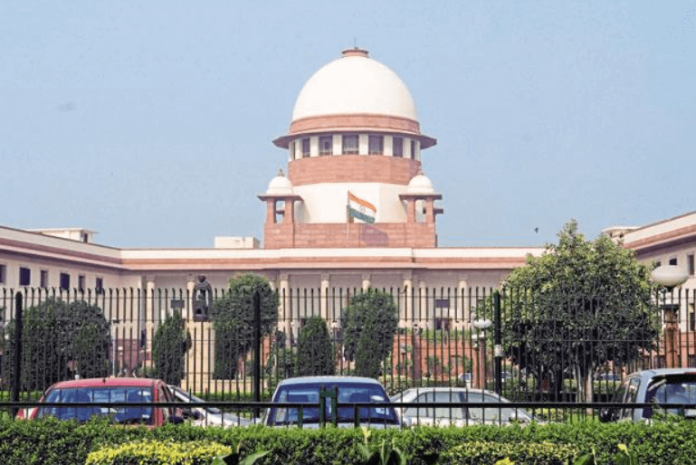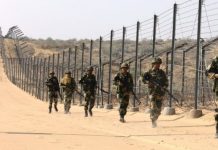This article is written by Sidra Khan, a student of Amity University, Noida. The article discusses the case analysis of Yakub Memon which clarifies whether justice has been done or not.
Table of Contents
Introduction
Yakub Memon was hanged on 30 July 2015 in Nagpur Central Jail and was the sole death penalty receiver for the 1993 Mumbai serial blast trial. There has been a lot of hue and cry on his execution, for some it was a relief from the everlasting agony of the loss of their loved ones but it is also an injustice to other groups. An overview of the Yakub Memon case is provided here.
History of Yakub Memon
Yaqub Abdul Razzak Memon was one of the most famous convicts in the March 1993 serial blasts case in Mumbai. He was once named as the Memon’s best-chartered accountant in the year 1990. One year later he and his childhood friend Chetan Mehta formed “Mehta & Memon Associates.” One year later, they split up and in memory of her father Memon formed his independent company, ‘AR & Sons.’ This business was so good that the Memon community in Mumbai gave him the best CA award. Yakub Memon was primarily responsible for providing financial support to the bombing executions and for supporting the preparation of 15 young people sent to Pakistan for the art of explosives. Yakub was detained on 5 August, 1994 by the Indian Central Investigative Bureau at New Delhi Railway Station.
Charges against Yakub Memon
Yakub Memon had been reserved for the following charges:
- Criminal conspiracy and financing the escape of the Memon family from the blasts.
- Aiding, abetting and felicitating the terrorist act.
- For having funded 15 young people and sending them to Pakistan for learning how to handle arms and ammunition.
- Illegal possession and transport of weapons and ammunition.
- Possession of explosives with the aim of endangering life.
Trial conducted
The trial was conducted by Justice P.D. Kode under the Terrorist and Disruptive Act (TADA) and on 27 July, 2007, he was found guilty of the following offences.
Yakub Memon was found guilty of criminal conspiracy, for carrying out terrorist activities and murder, aiding and abetting terrorist attacks. He was also held liable for illegal possession and transport of arms and ammunition with a view of endangering his life. And for all these crimes he was punished with severe imprisonment for 14 years and 10 years, followed by a death sentence.
Appeals and petitions before the Supreme Court
In compliance with Section 19 of the TADA Act, Memon lodged an appeal before the Supreme Court of India and State of Maharashtra filed a request for clarification of his death sentence. On 21 March, 2013, Memon’s conviction and the death penalty for treason were confirmed by the Supreme Court via the funding of attacks. The court found that Memon was not limited to the level of contact between the minds of the masters and the other defendants, but he was also instructed to handle explosive bags and to preserve them safely, as set out in some of the co-accused’s confessional statements.
Appealed for revision of death sentence
The court upheld his death penalty on his conviction of criminal conspiracy in the aftermath of terrorist attacks. Memon applied for a review of his death sentence. In addition to the masterminds of the attacks, he was also tasked with the safe holding and disguising of explosive bags.
On 30 July, 2013, Justice P.Sathasivam denied his appeal for the oral hearings and dismissed the appeal for the trial. Memon filed a revised petition seeking trial of a judgment of the Supreme Court upholding his death sentence.
Memon ‘s brother Suleman lodged a petition for mercy before the President of India on 6 August 2013. However, on 11 April, 2014, Indian President Pranab Mukherjee denied Memon’s clemency petition.
Judge J. Khehar and C. Nagappan subsequently on 1 June, 2014, imposed a stay on Memon because the oral proceedings in an open court were not allowable. He was put before the chambers rather than an open court.
The open court hearing on Memon ‘s appeal for review concluded on 24 March, 2015. Memon was represented by the senior counsel Jaspal Singh. The Supreme Court rejected a petition for investigation by Memon on 9 April, 2015.
On 30 April, 2015, the government of Maharashtra released a death warrant specifying 30 July, 2015 as the date for execution of Memon. On 22 May, 2015, Memon then filed a curative appeal before the Supreme Court, which was rejected on 21 July, 2015. Meanwhile, Memon then filed a mercy petition with Maharashtra’s governor and then filed a Writ petition before India’s Supreme Court for a hold on his execution until the appeal for mercy had been determined. He argued that the death warrant was unconstitutional because it had been given before he had exhausted any of his legal recourse.
Memon filed a fresh writ petition before the Supreme Court on 28 July, 2015 challenging the order passed in the curative petition alleging that the quorum required was not present based on the interpretation of the Rules of the Supreme Court. After the hearing, the two judges disagreed on the matter and passed an order demanding that the Chief Justice of India (CJI) appoint a larger bench as a matter of urgency. The Supreme Court denied his petition on 29 July. Memon also sent a clemency petition to Governor C. Vidyasagar Rao of Maharashtra, and a fresh petition to president Mukherjee, all of whom were refused. As a last resort, Memon’s lawyers filed a plea with the Supreme Court Chief Justice for a 14-day stay on execution, citing the need for a 14-day period between a president-rejected mercy plea and the execution. At 2:30 IST a tri-judge bench convened to hear the claims. Upon hearing the arguments the bench upheld the execution, ignoring the claims of Memon’s lawyers. At about 6:30 AM IST on 30 July, 2015 Memon was executed by hanging, in Nagpur Central Jail.
Fair trial
The Supreme Court proceedings usually involve a three-step process, comprising the original appeal, the request for review and the curative petition. While the judgment or conviction order of a district or tribunal is usually contested by criminal appeal before a High Court and a decision of the High Tribunal is appealed to the Supreme Tribunal, Section 19 (the TADA) Act, now abolished, provides that an appeal from the order of a court of law may only be brought before the Supreme Court. This provision removed one stage of appeal for most other convicts.
In cases involving those convicted under the TADA Act, a person who is grieved by the Supreme Court’s first appeal may make a request for review before the same bench which decided on the first appeal. A review petition can only be filed if the judgment is an error, which is visible to a spectator on the face of the record. Then the plaintiff will file a curative petition on the basis that he violates the natural standards of justice and is concerned about serious partiality with a decision in the review case.
In the case of Memon, the original appeal, a review petition, the second review petition, a curative petition, a written petition challenging the warrant of execution of the death sentence and proceedings to reset this written petition had already taken place in six phases in the proceeding. There had been every possible complaint, and I remember wondering why the court had agreed to hold the hearing on its premises in this specific case. The court might choose to refuse the application or the judge’s house could easily be convened, as has been done previously.
Nevertheless, if, I have to say, the Supreme Court had found it appropriate to hold an open court hearing at 3.30 am, there would have been very strong reasons for doing so. The argument about whether or not Yakub was given judicial authority or was subjected to prejudiced courts of justice might have been an endless one.
Due process followed or not
The president may grant pardon, suspend, remit, or commute a death sentence pursuant to Article 72 of the Constitution. However, he does not exercise this authority alone. The President must act on the advice of the Ministers’ Council. The Constitution has made this clear as well.
In the case of Maru Ram v. Union of India, The Constitutional Bench of the Supreme Court of India held that the power provided for in Article 72 should be exercised on the advice of the Central Government and not, at its discretion, by the President. And that the Government’s advice to him is binding. The issue of Article 72, with a different statute, appeared before the Court. In this scenario, the question was whether Section 433-A of the Code of Criminal Procedure would affect Article 72 and Article 161 of the Constitution. Because Sections 432 and 433-A are legislative requirements and Articles 72 and 161 modus operandi, it is argued that Article 433-A should, therefore, be rendered ineffective. The explanation for this was that the two other clauses were distinct and thus contradictory to the Constitutional provisions. The court held that while the powers referred to in Articles 72 and 161 and 433-A may be similar, but not identical.
In the case, Ramdeo Chauhan v. State of Assam later concluded that the power under Articles 72 and 161 of the Constitution are absolute and that no legislative provision, such as Sections 432, 433 and 433-A of the Code of Criminal Procedure, would hinder it. The same issue shall restrict the exercise of power under Article 72 for a period of 25 years after conviction.
In the case, Madhav Shankar Sonawane v. the State of Maharashtra, the Bombay High Court held that it is not permissible for the Courts to appear before the Court, the issue was, whether or not Section 307 of the Indian Penal Code, read under Section 34 of the Indian Penal Code, which has a sentence to hold a convict shall have to undergo a minimum period of sentence even with an exercise of constitutional jurisdiction by high constitutional functionaries under Article 72 and 161 to the length of a year.
In the present case, A three-judge bench (Justices Dipak Misra, PC Pant and Amitava Roy) at 4:15 p.m. rejected Memon’s written petition under Article 32 of the Constitution for the quashing of the death warrant. The judgment was posted at about 11:00 p.m. on the 29th July the eve of its execution a few hours prior to Memon’s death hanging. Does it not mean breaking the natural justice if he does not have a fair opportunity to read the verdict until he has been sent to the gallows? Again, at about 5:00 a.m. Memon got the chance to read the verdict. On the 30th of July, the President rejected the mercy petition and refused to give the 14 days time. Unless the defendant is aware of the verdict, it is not enough for the case to be lodged and read himself in by Memon. The case is on behalf of him, the lawyer pleads only. The decision is for Memon rather than the counsel.
Conclusion
If Yakub Memon had been given 14 days to challenge the refusal of his mercy petition, there was no problem. This was the fundamental right of Memon. It can not be sacrificed by the session tribunal on the altar by sticking to the set date or the fact that his brother had denied a previous petition. And according to me the decision of the Supreme Court has led to a grave judicial error. Moreover, Tiger and Ayub (who are still in Pakistan as ISI protectors) are the Memons that deserve to be hanged too. As they were at the root of the 1993 bombing conspiracy in several places, leaving 257 people dead. This does not mean that the Yakub Abdul Razak Memon was irreproachable, but definitely he was not the only one who did not deserve the maximum punishment for those who died during the 1993 blasts.
However, Section 21 of the Act unless proved otherwise, any person found to be aiding or financially assisting any person involved in the terrorist attacks and possessing weapons shall be presumed to be guilty. According to the language of this provision, Yakub Memon can be considered prima facie guilty as he was found in Karachi with his conversation tape and also funded the terrorist attacks that are evidence against him. Yakub Memon’s been hanged. Yet the issues around him will reverberate for a long time in our consciousness.
References
- http://racolblegal.com/analysis-of-yakub-memon-case-justice-or-injustice/
- https://www.livemint.com/Politics/rqxfPevAj267VbqEHk66lO/Yakub-Memon-case-Death-penalty-in-India-by-the-numbers.html
- https://www.firstpost.com/india/all-you-need-to-know-about-1993-mumbai-blasts-accused-yakub-memon-2354838.html
- https://indiankanoon.org/doc/160740668/
LawSikho has created a telegram group for exchanging legal knowledge, referrals and various opportunities. You can click on this link and join:
 Serato DJ Crack 2025Serato DJ PRO Crack
Serato DJ Crack 2025Serato DJ PRO Crack










 Allow notifications
Allow notifications


